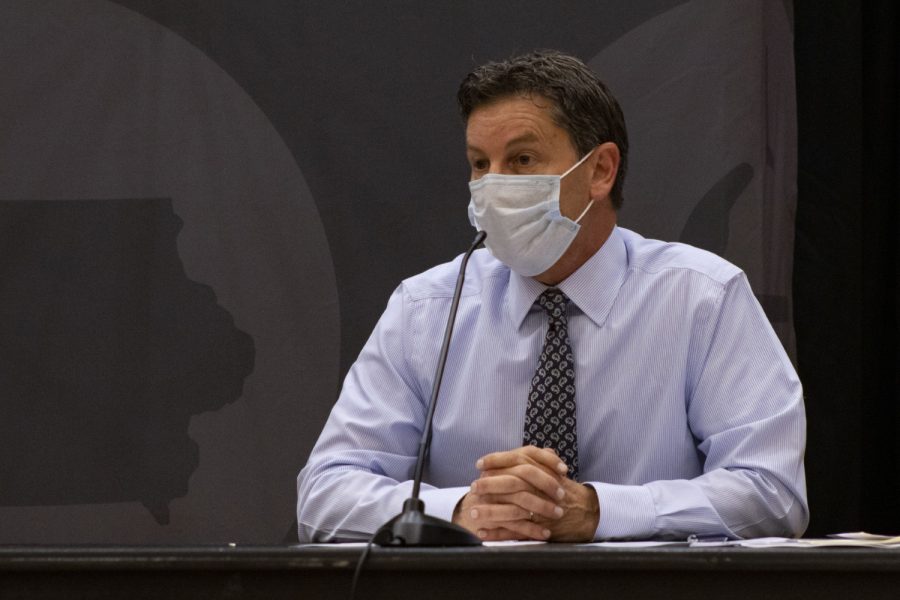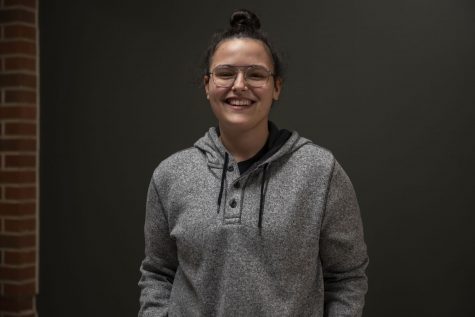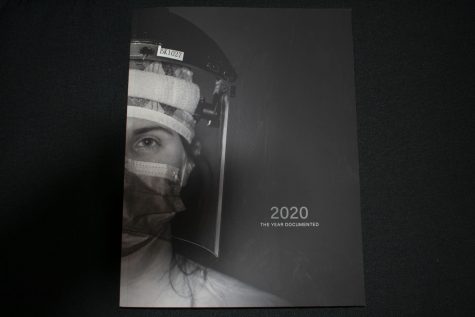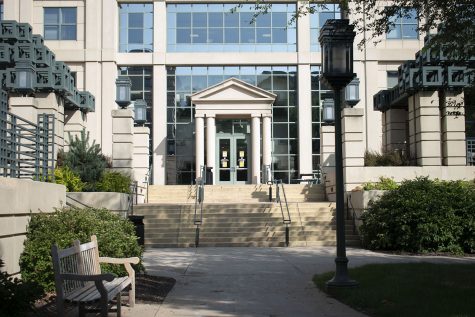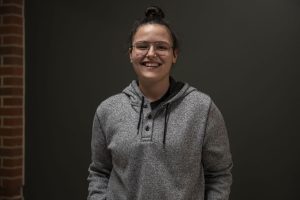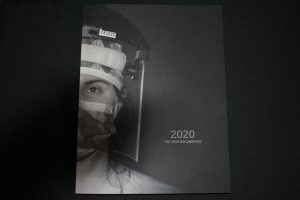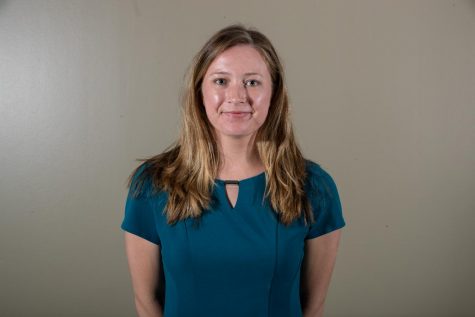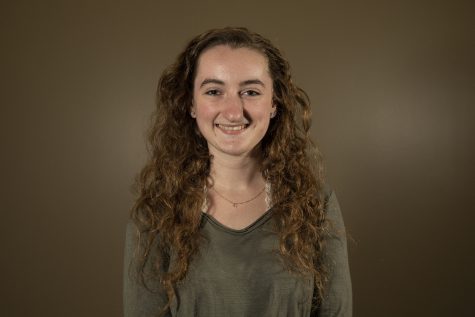University of Iowa provost: biased professors ‘outliers’
As several bills targeting protection of speech on campuses are introduced into the Iowa Legislature, University of Iowa Provost Kevin Kregel talks with the DI about the path forward on free speech and the UI’s next five-year strategic plan.
UI Interim Provost and Executive Vice President, Kevin Kregel, speaks at a press conference on Monday, Aug. 10, 2020 in the IMU 2nd floor ballroom.
March 7, 2021
Newly permanent Provost and Executive Vice President Kevin Kregel told The Daily Iowan in an interview that some bills in the Iowa Legislature targeting higher education were aimed at a tiny fraction of campus interactions.
Several bills that would alter how Iowa’s public universities operate have been introduced into the Iowa Legislature, including a bill that would eliminate tenure, which passed a key legislative deadline over the weekend, and another that would’ve polled professors on their political preferences, which did not advance.
Leaders at each state institution have condemned the proposal to eliminate tenure, which would leave Iowa without an incentive to keep talented and productive faculty members from leaving for other institutions with stronger protections for academic freedom.
According to university demographics, there are more than 1,400 tenure or tenure-track faculty members and about 2,400 total faculty members. While the UI hears about instances of potential bias periodically, Kregel said, “we address those very clearly and point out to the individuals what the expectations are, remind them, and we move forward.”
“So that’s 2,400 individuals with their own opinions, their own perspectives,” Kregel said. “There’s always going to be an outlier, there’s going to be one incident a semester, for example, but in general, our faculty walk into the classroom, and you’ve probably experienced this, that they are fair and objective in how they deliver the content in the classroom settings.”
Moving forward, Kregel said the UI must continue to engage with lawmakers.
“I think that the bills you pointed out clearly would be either not feasible or really untenable for the university,” Kregel said. “And we made those points with the state Legislature and certainly work with the Board of Regents to help educate legislators.”
Strategic plan
Kregel was appointed to serve as interim provost in July 2020, and the UI announced he would step permanently into the role in February.
Under his tenure, the UI is looking to develop its next strategic plan for the university for the years 2021-27. Kregel said the focus of the UI’s next strategic plan will be to “build the university and focus the university strategically to be a destination university.”
Kregel is a co-chair of a yet-to-be-announced strategy team to compose the next strategic plan, which will be implemented beginning in July 2022. According to a February media release, the strategy group will include representatives from faculty, staff, central administration, collegiate deans, UI Health Care, and the UI Center for Advancement.
The UI is developing its strategic plan as it’s also searching for a new president of the university. According to the search committee’s tentative timeline, the state Board of Regents will select a new president by the end of April.
Kregel said the UI would focus on the “broader bedrocks” for the university to be set before a new president takes the helm. Administrators received collegiate and unit strategic plans March 1, Kregel said, and will be spending the next several months pulling common threads of those plans to create a university-wide plan before having campus discussions and town halls in late fall and early spring.
“So, there will be certainly a window of time, not only for the new president, but for the entire campus to provide feedback in these drafts of what we’re building,” Kregel said.
For Kregel, focusing on the UI as a destination university means focusing on what the UI is good at.
“And so, what that means in my mind, is to identify those really strong programs on campus,” Kregel said. “What makes the University of Iowa unique to attract students in a variety of settings, makes us a really attractive opportunity for students from a variety of backgrounds, a variety of regions, but with a variety of interests?”
One example, he cited, is the university’s writing programs. The Iowa Writers’ Workshop has produced more than a dozen Pulitzer Prize winners, and from 2013-17 accepted a lower percentage of applicants than Harvard.
The UI began crafting its strategic plan last year, but paused because of the pandemic. The UI hopes to bring a strategic plan to the regents in spring 2022.
For funding the strategic plan, Kregel pointed to the UI’s public/private partnership, a deal which is expected to bring the university $15 million each year from a $1 billion, 50-year deal in which a private company operates the university’s utility system.
UI President Bruce Harreld has touted the public/private partnership as a method to fund priorities in the face of declining state funding and an expected nationwide decline in college-age students. At a speaking event this fall, Harreld said he was looking at other potential partnerships, though nothing was set in stone yet.
“Right now, there’s nothing planned specifically but I think it’s an option we want to look at,” Kregel said. “With challenges with state funding likely to continue to decline, we need to look at other revenue sources.”
In addition to Kregel, now-Executive Officer for Diversity, Equity, and Inclusion Liz Tovar was also promoted from interim to a permanent role without a customary search. Some campus members critiqued the administration for not adding transparency with a search.
On Tovar’s appointment, Kregel likened her six-month tenure as an interim leader of the division to a long interview process.
“We learned over the last several years that it’s really important to know the qualities of an individual and how they work as a team with other campus members,” Kregel said. “And we had eight and a half years of knowing how Liz worked with other people and her skill set. So, it was like a very long duration interview process, if you look at it that way for me.”



